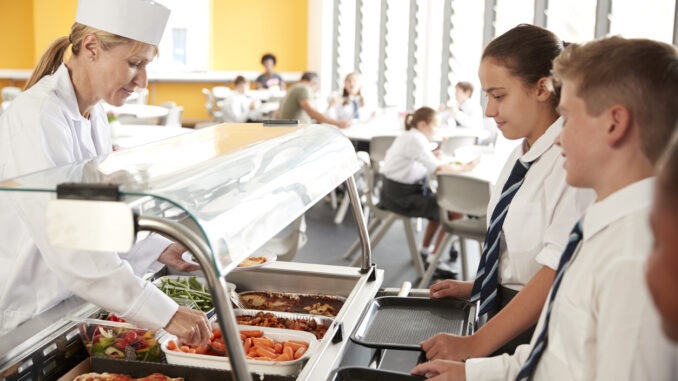
As reported by the Guardian, inflation and the rising cost of food is causing many catering firms to pull out of their contracts with schools
The fear is that this will result in children receiving “poorer quality meals” as schools search for cheaper alternatives.
Food prices have increased by 20%, with staff and energy costs also on the rise.
The government’s recent announcement to uplift funding for universal infant-free school meals (UIFSM) by 7p- from £2.34 to £2.41 – has been described as “not enough” by campaigners.
Many catering companies are said to be “at breaking point”.
LACA represents more than 3,000 school food providers and delivers 3m lunches every day. The organisation has warned of the current postitiion and that “the industry needs meaningful investment”.
A LACA statement said: “LACA has long called for an increase to a minimum of £2.47 (for UIFSM), in line with (other) free school meal funding and for this to rise annually with inflation.
“Our members have made it clear that without this increase they will find it hard to meet the school food standards in September. For many children, this is their only hot meal of the day, which is why it is more urgent than ever that caterers receive sufficient funding.”
Chair of LACA, Jacquie Blake, fears this is “likely to lead to poorer quality meals.”
Many schools already subsidise funding for free school meals with money from other parts of their budget to make up costs.
Price rises have already had an impact on school menus. The cost of a pack of 60 fishcakes has doubled from £5.95 to £11.95 and many pupils who once received a free breakfast, are now charged by their school.
A government spokesperson has commented: “This government has expanded access to free school meals more than any other in recent decades, and we continue to work across government to address rising costs, building on over £37bn announced to help the most vulnerable.”
How school meals are changing to keep costs down
Mince: caterers are adding either pulses (lentils etc.) or a protein substitute to make mince go further and reduce costs.
Lamb: now often off the menu – too expensive.
Fish fingers: costs of white fish have risen given that much of it is caught in Russian waters. Pollack and coley are now often used as substitutes. One caterer said: “We’re going to have to get used to grey fish fingers”.
Fruit: Strawberries and melon are expensive and are being replaced with apples and oranges.


Be the first to comment